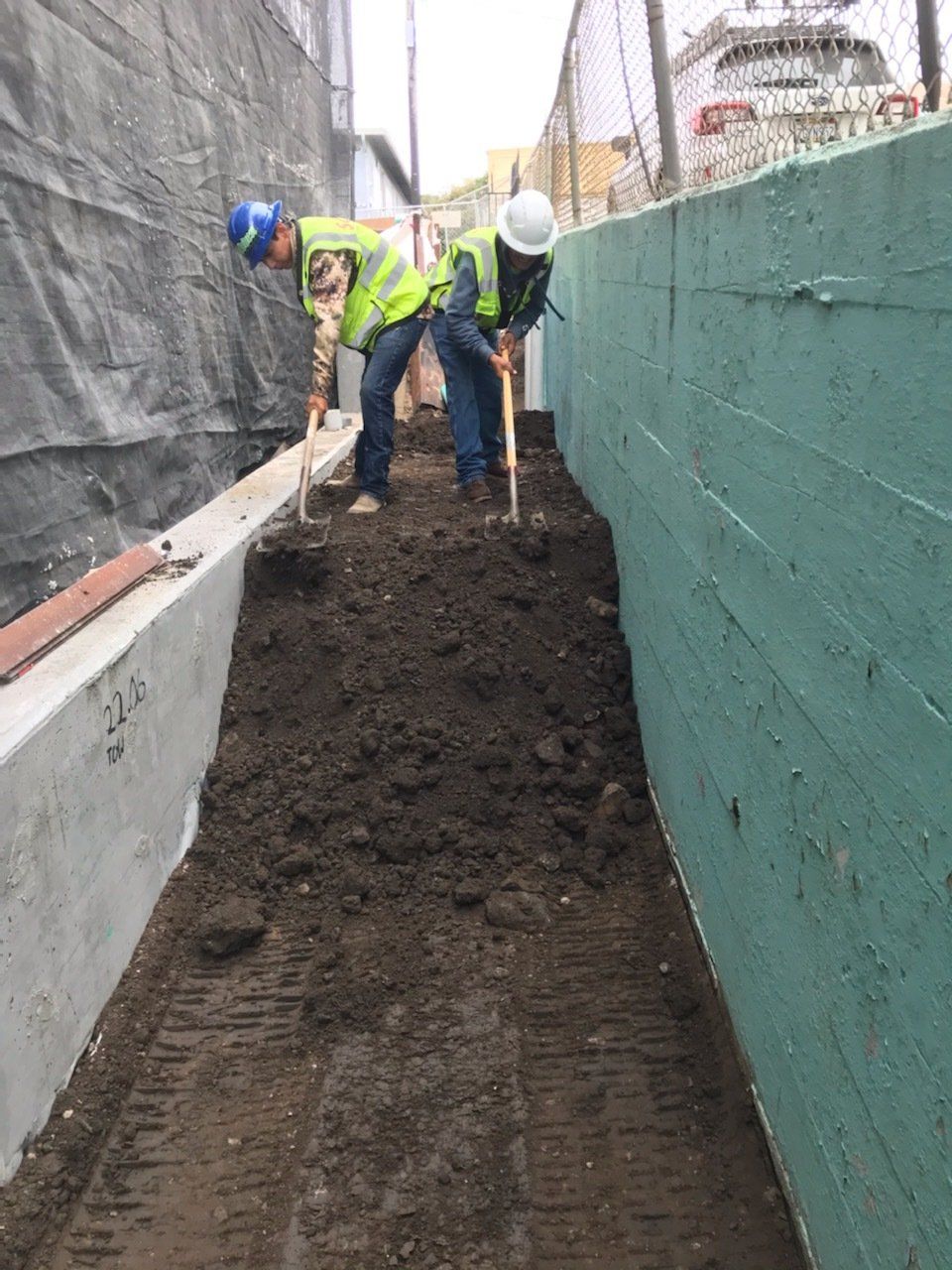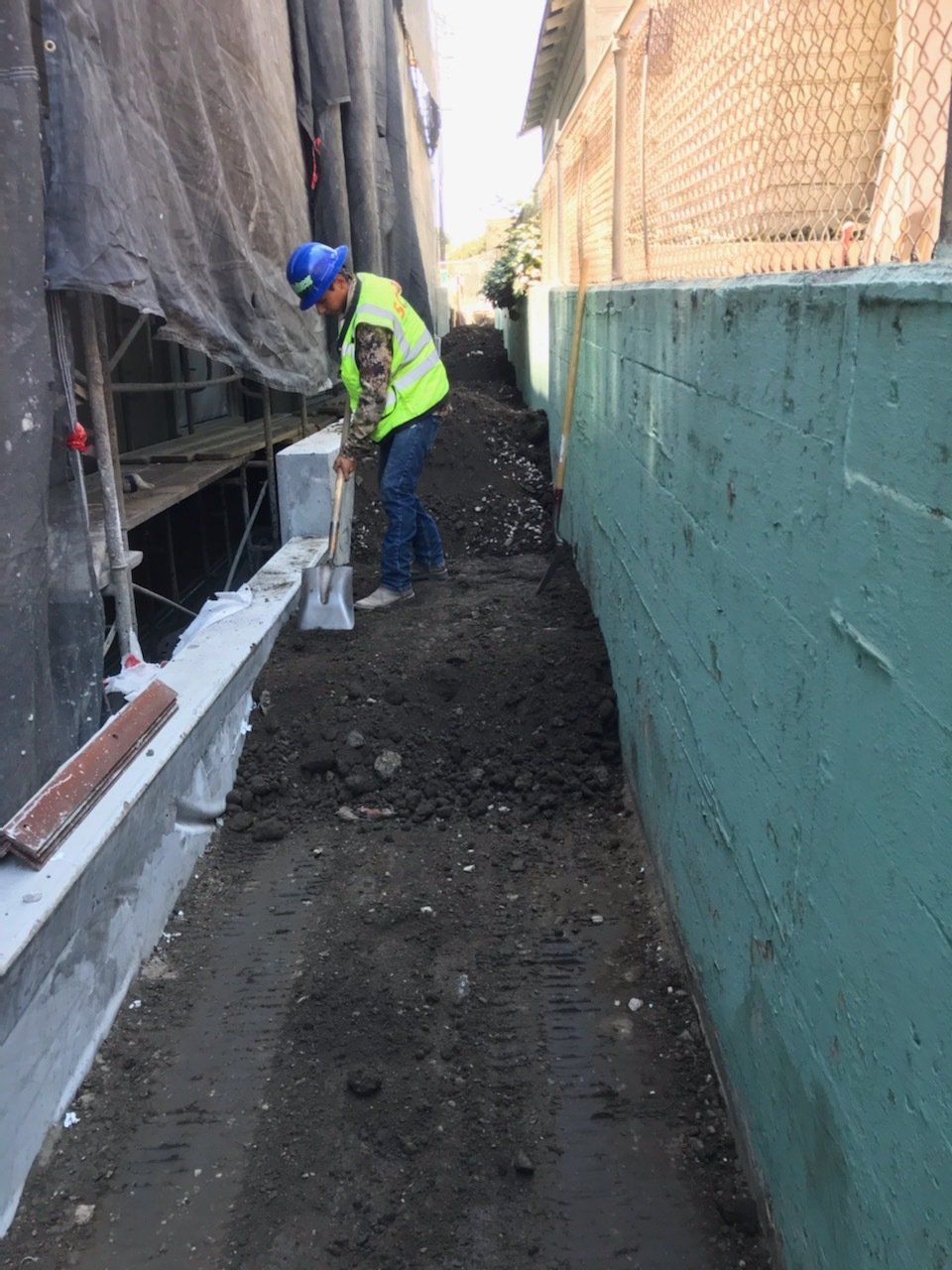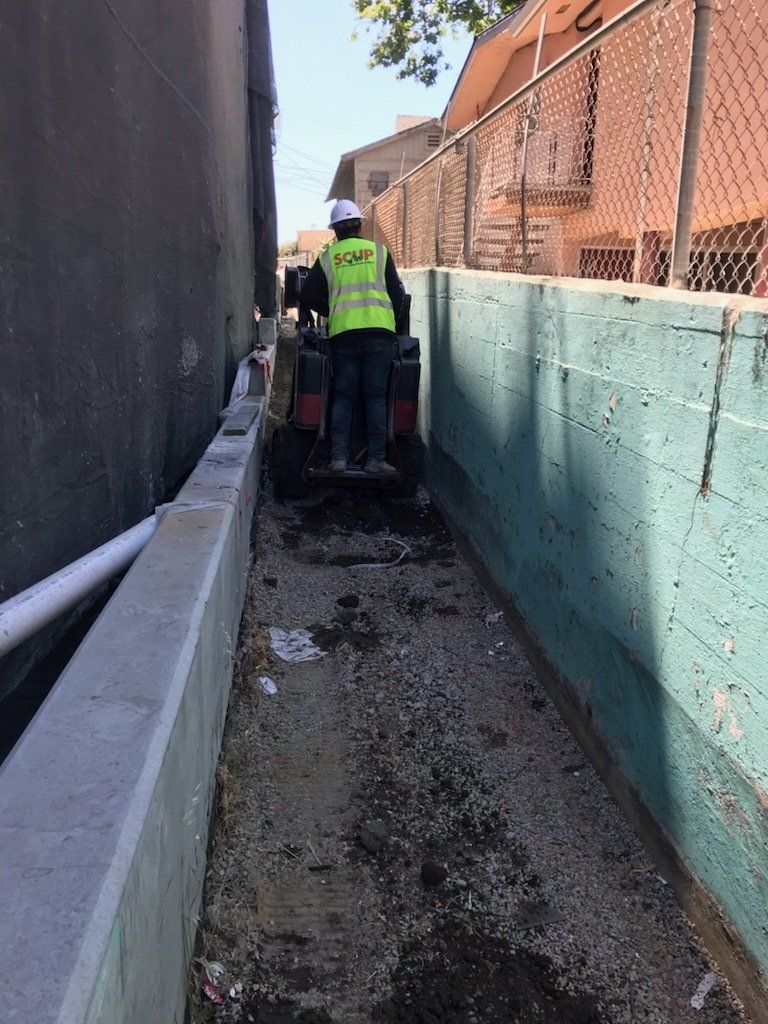The Best Excavation Contractor in Santa Cruz
With over 15 years of experience, we are the excavating experts.
We provide excavation services for commercial and residential properties. If you need to lay pipes or install a septic system or do a big dig for any reason give us a call. We are excavating pros and we will be able to help with anything you need.
Do you have a tight job? We can handle that as well. Here we are backfilling between two walls for a new walking path.
Here we are backfilling with a motorized wheelbarrow in a tight space between two walls.
Santa Cruz County's Earthwork Professionals
If you are building a home or commercial building, there is a big possibility that you’ll be needing some form of earthwork in order to prepare your site. Earthwork is also needed in other construction projects such as creating swimming pools, roads, landscaping, and driveways. Earthwork is basically work that deals with the earth’s surface. These can be small-scale work, such as a backyard, to larger-scale commercial projects like train stations and roads. Before building these sites, it is important that your site is properly leveled and can be built upon. There are different earthwork processes and each process includes different machinery.




